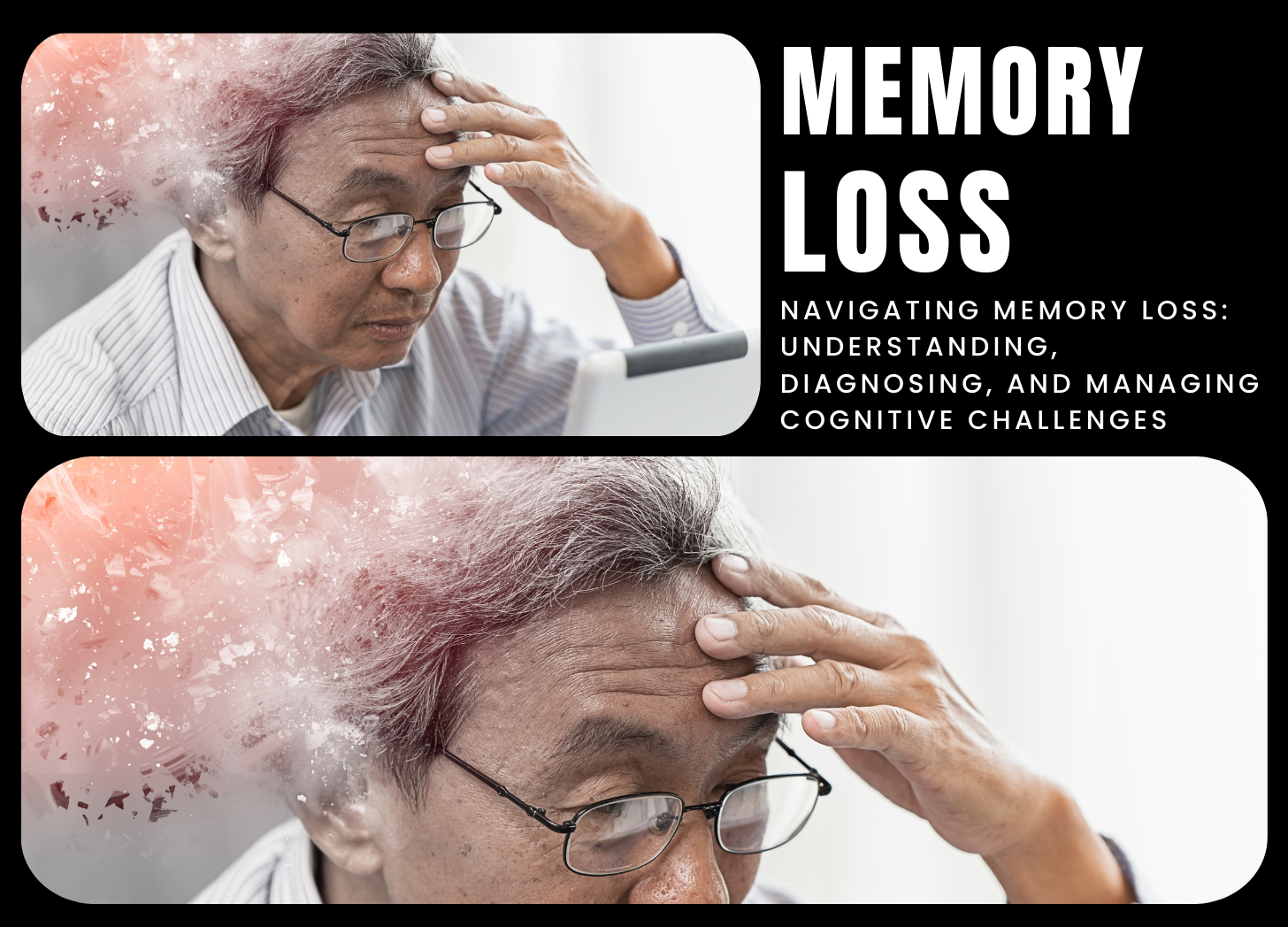Contact Us
Contact Us

Memory loss, often known as amnesia, is the inability to recall previous events, facts, or experiences. It can range from minor amnesia to severe memory loss, affecting many facets of everyday living. Memory loss can be temporary or permanent, and it can be caused by a variety of causes such as age, physical illnesses, neurological disorders, pharmaceutical side effects, or lifestyle choices.
The reasons of memory loss differ based on the individual and underlying variables. Normal aging is frequently associated with minor cognitive deterioration, such as forgetfulness or trouble remembering names or words. Significant memory loss that impairs everyday functioning, on the other hand, may suggest underlying medical disorders such as Alzheimer’s disease, vascular dementia, moderate cognitive impairment, traumatic brain injury, stroke, or brain tumors. Other conditions that might cause memory loss include persistent stress, depression, sleep difficulties, dietary inadequacies, alcohol or drug misuse, and pharmaceutical adverse effects.
Common memory loss symptoms include difficulty remembering recent events or conversations, repeating questions or statements, misplacing items or forgetting where they are, difficulty learning new information or tasks, confusion or disorientation in familiar surroundings, and difficulty concentrating or making decisions. In severe situations, memory loss can lead to individuals being unable to identify family members or conduct basic daily activities alone.
Memory loss is often diagnosed with a comprehensive medical evaluation that includes a detailed medical history, physical examination, neurological assessment, and cognitive testing (such as memory tests, language tests, and problem-solving exercises). Laboratory procedures (such as blood tests or imaging examinations) may be required to rule out underlying medical disorders or to evaluate brain function and structure. In some circumstances, a neurologist or neuropsychologist may be consulted for additional evaluation and specialist testing.
Memory loss treatment is determined by the condition’s underlying etiology and severity. In cases of reversible memory loss caused by medical issues such as vitamin shortages or pharmaceutical side effects, addressing the underlying cause may help improve memory function. Treatment for progressive neurological conditions such as Alzheimer’s disease or other types of dementia aims to manage symptoms, slow disease progression, and improve quality of life through medications (such as cholinesterase inhibitors or memantine), cognitive rehabilitation, lifestyle changes (such as regular exercise, a healthy diet, and social engagement), and support services (such as memory care programs or caregiver support groups).
In conclusion, memory loss is a widespread issue that can be caused by a variety of factors such as aging, medical conditions, neurological abnormalities, pharmaceutical side effects, or lifestyle choices. Early detection, detailed examination, and proper care are critical for identifying the root causes of memory loss and implementing therapies to improve memory function and quality of life. Individuals can take proactive actions to maintain brain health and cognitive function as they age by increasing knowledge of memory loss and its potential causes and remedies.
References:
1.Mayo Clinic. (2022). Memory Loss. Retrieved from https://www.mayoclinic.org/diseases-conditions/alzheimers-disease/expert-answers/memory-loss/faq-20057918
2.National Institute on Aging. (2022). Understanding Memory Loss. Retrieved from https://www.nia.nih.gov/health/understanding-memory-loss
Post a Comment